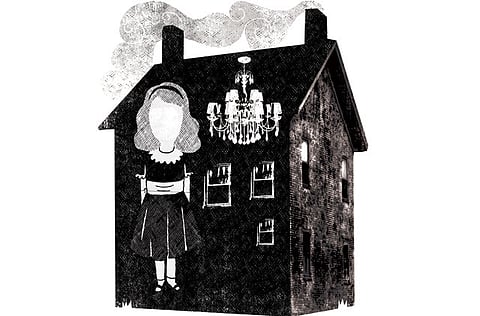Madame Memory
A man retreats from his grief at the loss of his only daughter into the consoling memory of a teenage affair

We have met Alexander Cleave, the narrator of “Ancient Light” before. On the first occasion, a dozen years ago, in John Banville’s novel “Eclipse”, the actor, on the run from catastrophic stage fright and his wife, pitched up in the abandoned home of his dead parents and tried to come to terms with some of the ghosts of his childhood. In that novel the spectres of Cleave’s anguished state took on strangely corporeal form: A ghoulish caretaker and his wayward daughter haunted either the ramshackle house, or the upstairs bedrooms of narrator’s mind; the reader was never quite sure which. “Eclipse” was very much concerned with the escape hatches of memory, the immanence of past lives that we use to block out the present. The shades of Cleave’s ghostly dream world on that occasion were brought to an abrupt close by news of the suicide in Italy of his only daughter, Cass, haunted by demons of her own (a story that itself was embellished and inhabited in Banville’s 2002 novel, “Shroud”).
In the opening pages of “Ancient Light”, Alexander Cleave is back on his journey of self-absorption, a decade on from that defining tragedy. He is in an upstairs attic room, apparently writing a memoir of his first love, while downstairs, some nights, his wife sleepwalks desperately from room to room in restless search for Cass, before he guides her back to the marital bed. His own grief takes on a different form: He seems to have retreated into the mostly consoling memory of a passionate teenage affair with the mother of Billy Gray, his best friend. Cleave is 15 in his head, wilfully turning back 50 years, in the quest “to fall in love again, to be in love again, once more”. His is a theatrical voice, and as before, through its self-dramatising filter, we are never quite sure where we stand: “Some say that without realising it we make it all up as we go along, and I am inclined to credit it, for Madame Memory is a great and subtle dissembler.”
What follows — a breathless account of Cleave’s first charged and fumbling encounters with the woman 18 years his senior — becomes far more real than anything that happens in the present surface of the novel, the day-to-day anguish of bereaved parents, and, latterly, the unlikely renaissance of the actor’s career in a filmed biopic of a controversial literary critic. The recovered fantasy of teenage lust, or love, apparently wipes everything else clean. Mrs Gray is conjured with such poetic fervour that the ghosts of the now seem pale and insubstantial things.
Banville, with his forensic sensory memory, his great gift for textural (and textual) precision, his ability to inhabit not just a room, as a writer, but also the full weight of a breathing body, is exactly in his element here. Cleave begins with nothing much more to go on than the vision of a woman on a bicycle half a century ago, with “all the dash and grace of a trim schooner plying fearlessly into a stiff nor-wester”. The woman may or may not have been Mrs Gray, but he likes to think so, and from that moment of awakened desire, he tells himself, all of the rest of his life has flowed.
Once Cleave is into this fantasy — interrupted only occasionally by his wife knocking at the attic door, interventions that he rebuts by shielding his words with his arms, cradling his memory, like a swot in a maths exam — nothing gets in his way.
As the inevitable tragedy of this lost innocence unfolds in his narrator’s mind, and detail piles on detail, from time to time Banville taps his reader on the shoulder, just to undermine the rapture a little. A strange and barely believable subplot takes root in which Cleave the actor appears to abscond with his leading lady, Dawn Devonport, in the film in which he is supposedly starring. The character he plays in that film, Axel Vander, the literary critic, is not only a near anagram of his own first name, but also, Banville readers will recall, the curious protagonist of “Shroud”, in which his life crossed catastrophically with that of Cassandra Cleave. If all this makes it sound like a circle is about to be closed, don’t be fooled. Cleave takes most of his clues to playing Vander, who seems to be a cipher for the post-structuralist Paul de Man, from a book by a Mr Jaybee (JB, geddit?) with which with he struggles to get on.
Banville’s three novels taken together are not so much a trilogy as a triptych mirror. Not much is resolved between them, though each one creates a vivid new angle of reflection. Banville’s ostensible theme throughout might be the fictions we tell ourselves in the name of memory, the self-protection and the self-harm that the past affords us, but they never threaten chilly abstraction, or even formal riddling of the kind favoured by Paul Auster. His writing is too precise, too beautifully freighted with the described world for that. Cleverness is on display, and nothing might be quite what it seems, but Banville’s duty of care, to the emotional lives of his characters, to the worlds in which they live, is not neglected for a moment.
-Guardian News and Media Limited



